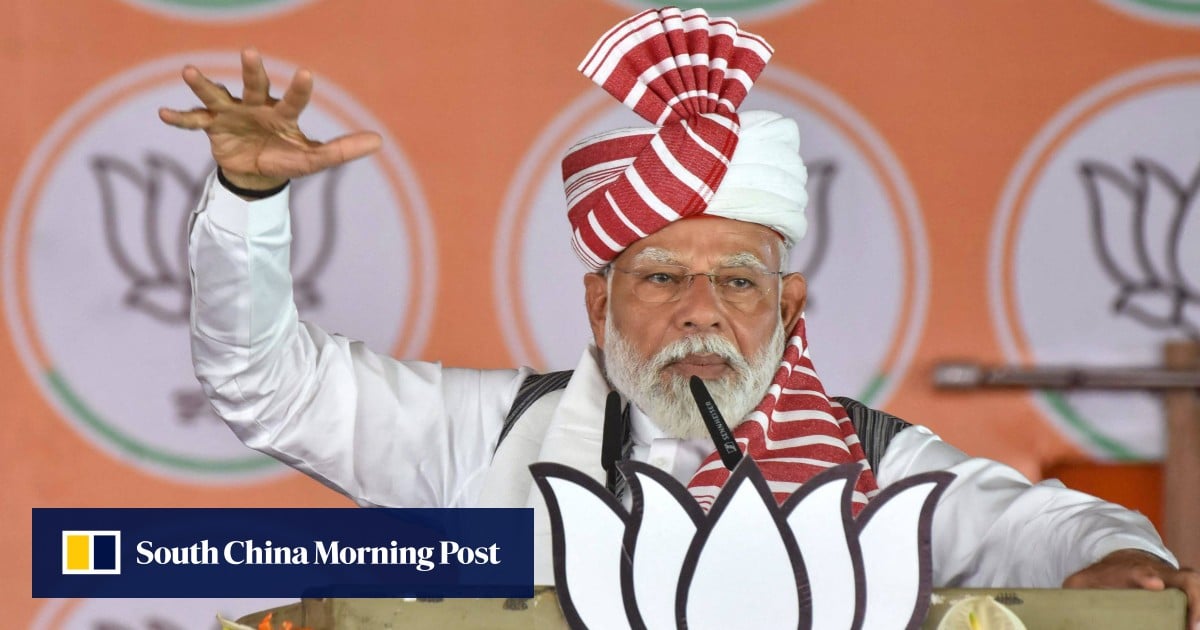Indian Prime Minister Narendra Modi and his top aides have accused opposition leader Rahul Gandhi of allegedly receiving support from rival Pakistan over a social media post, but analysts say the spectre of Islamabad again at the polls is muted this time.
New Delhi had five years ago launched warplanes in Balakot, deep inside Pakistan territory, where it claimed to have killed militants who were planning to strike targets in India.
Analysts said that strike sparked a swelling of nationalism for Modi’s Bharatiya Janata Party (BJP) to win a second term, but in this election round, any alleged Pakistani interference would only be a side issue as momentum was already on the side of the BJP.
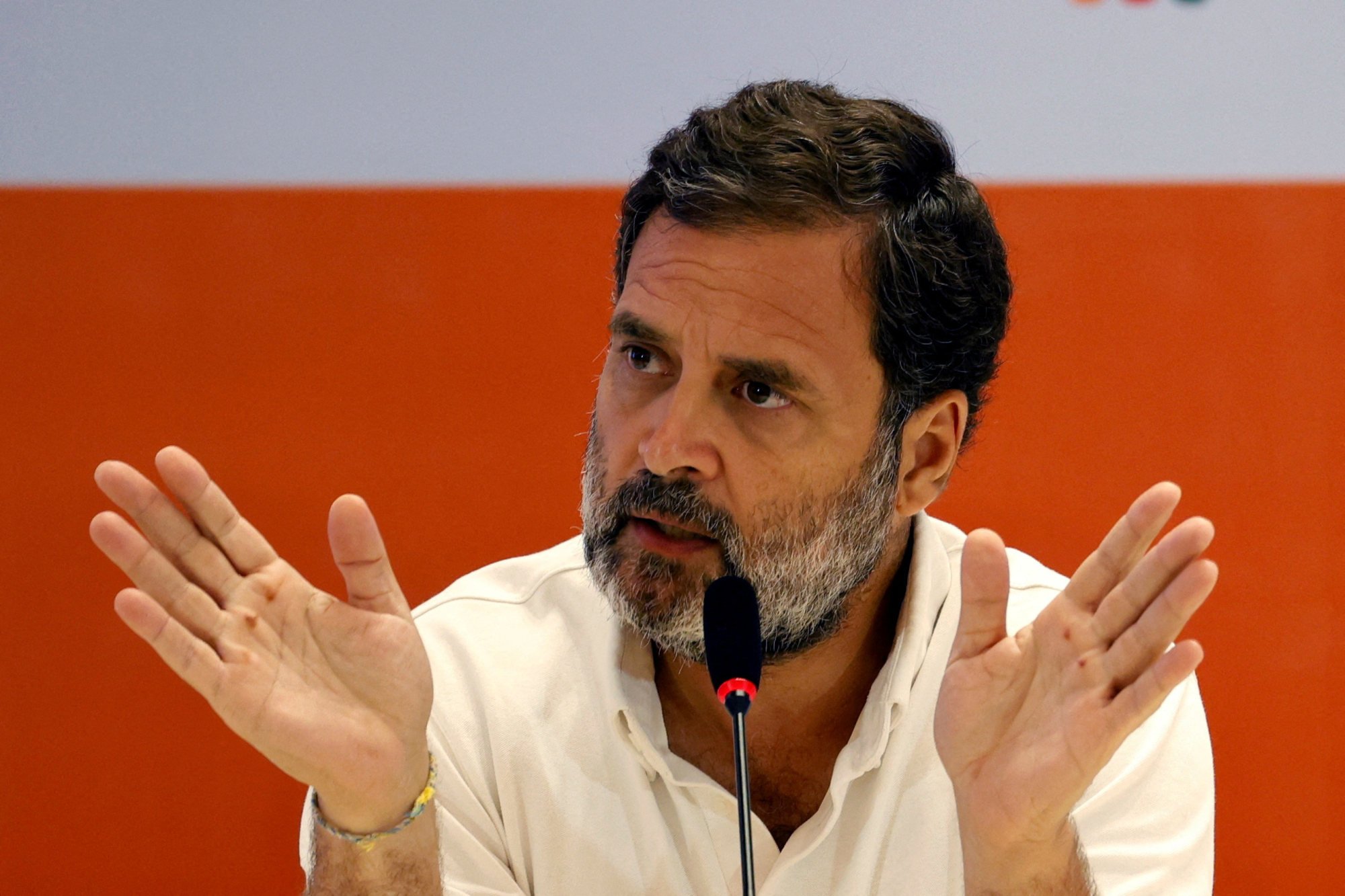
The recent controversy erupted when Pakistani politician Fawad Chaudhry, a minister under former prime minister Imran Khan’s government, in the midst of the ongoing election in India posted on social media X a video of a speech by Gandhi – where he criticised Modi for not focusing on uplifting the poor – saying “Rahul on fire”.
The post triggered the ire of the Hindu nationalist BJP, which has previously accused the opposition Congress party of having been soft on separatist militants in Kashmir – the Himalayan province at the centre of decades of dispute between the two neighbours.
In an election rally in Palamu, Modi said Pakistan had been shaken by the air strikes in Balakot and was now praying that the Congress “shehzada” (prince) would become India’s prime minister, alluding to Gandhi.
But India wanted a “strong country with a strong PM”, he said.
Smriti Irani, who has held two ministerial roles under Modi’s government and defeated Gandhi from Congress stronghold Amethi in the 2019 general election, also questioned why a Pakistani leader was supporting Gandhi.
“What is this relationship between Pakistan and Rahul Gandhi? Elections are going on in the country but you [Rahul Gandhi] are getting support from them and did not condemn it,” she said during a recent election rally.
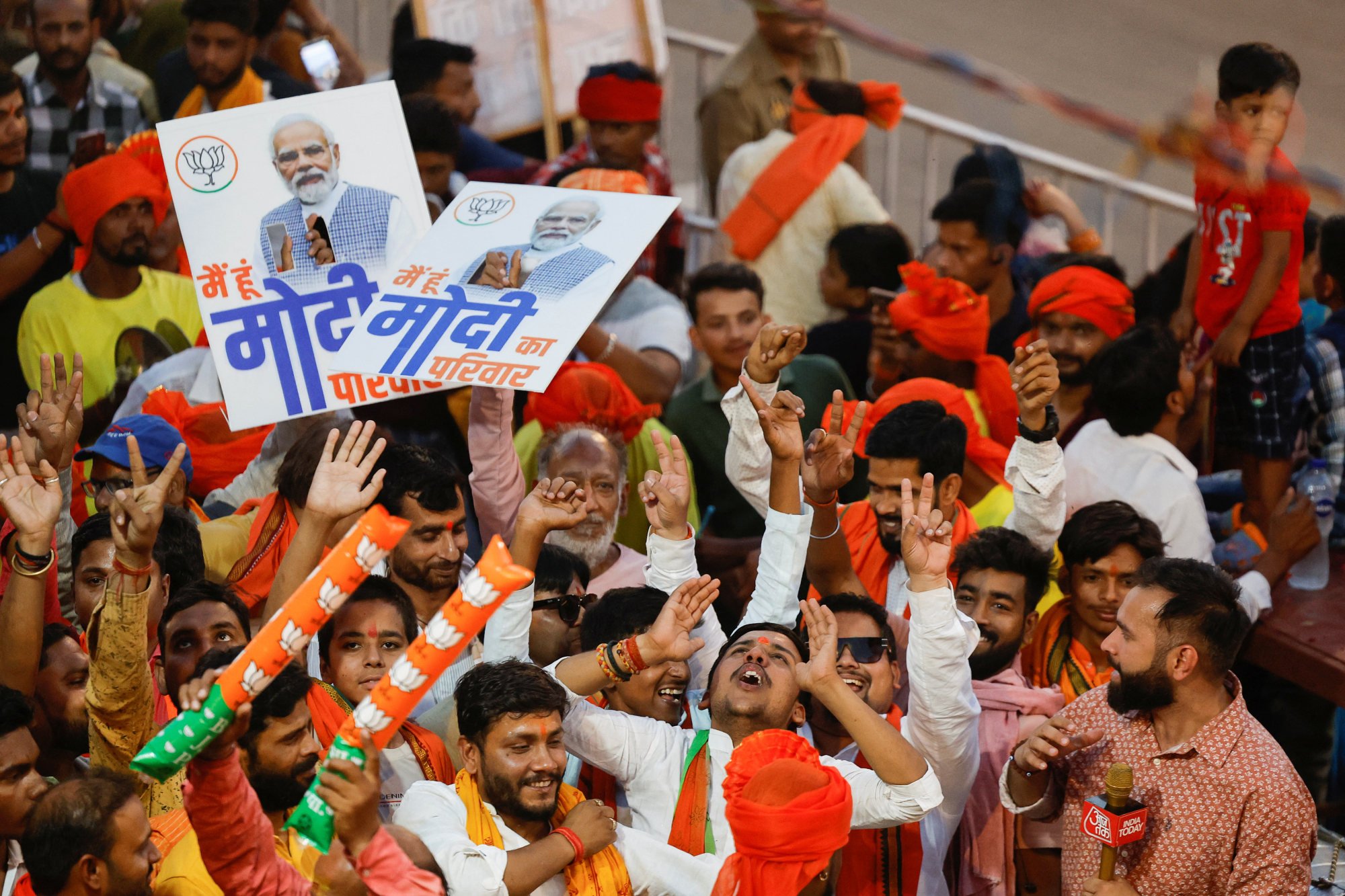
Gandhi has been subdued in responding to the BJP’s criticism, but the issue is unlikely to become a rallying point with voters, according to observers.
“It becomes convenient for them to say that Pakistan wants Rahul Gandhi to be elected, but this won’t have much impact,” said Sanjal Shastri, assistant professor at the western Indian city of Pune’s Flame University.
While the topic of Pakistan’s alleged support for separatist militants in India has featured prominently in the BJP’s political narrative in the past, it appears to be a side issue this time, according to Shastri.
In the past two general elections, the BJP had managed to swing voter support with an overarching issue that appealed nationally such as providing a corruption-free government in 2014 and patriotism in 2019 through strikes conducted in Balakot, he said.
But the Congress-led opposition has so far failed to capitalise on the BJP’s vulnerability despite Gandhi having raised issues such as a survey to ascertain the distribution of wealth. “I still feel the BJP has the momentum,” Shastri said.
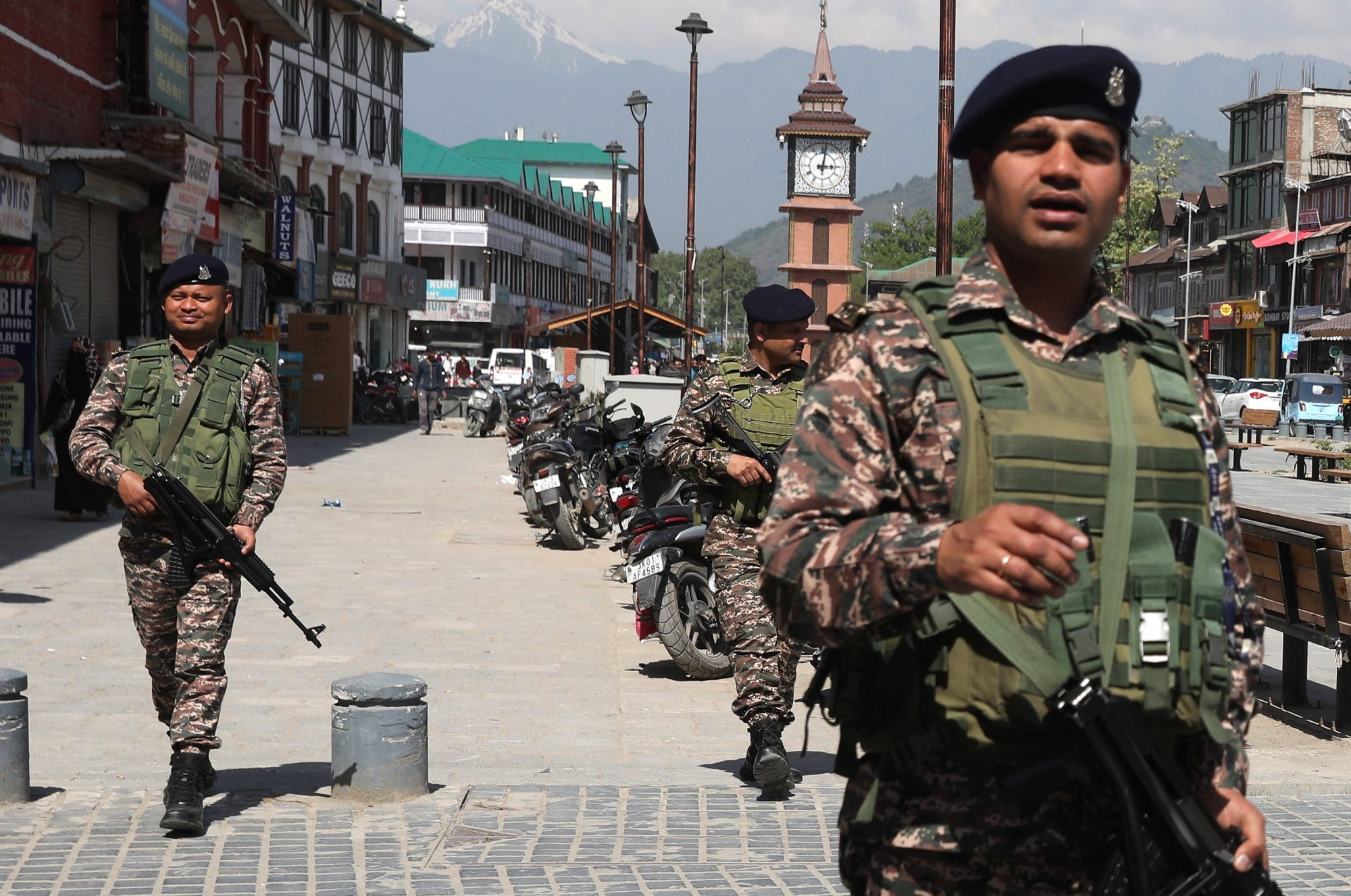
The debate over Pakistan and militancy in Kashmir has become murkier still after Congress leader and former Punjab chief minister Charanjit Singh Channi claimed that a militant attack on an Indian Air Force convoy in the province earlier this month, in which one security personnel was killed and four were injured, was manipulated by the BJP before the election.
Indian Defence Minister Rajnath Singh slammed Channi’s remarks at a recent rally.
“Congress has always resorted to politics of negativity. Recently, a group of terrorists attacked our armed forces in Kashmir. Mr Channi termed it as an election stunt. Does it mean we orchestrated terrorist attack[s] on our army?” he was quoted by the Hindu newspaper as saying.
Professor Ajay Darshan Behera of the Academy of International Studies at Delhi’s Jamia Millia Islamia University said BJP leaders’ remarks on Pakistan were aimed as much at drawing attention to the party’s own governance as criticism of Congress.
“Within the larger BJP narrative, there is this argument that the respect for the Indian passport has increased since Modi came to power,” he said.
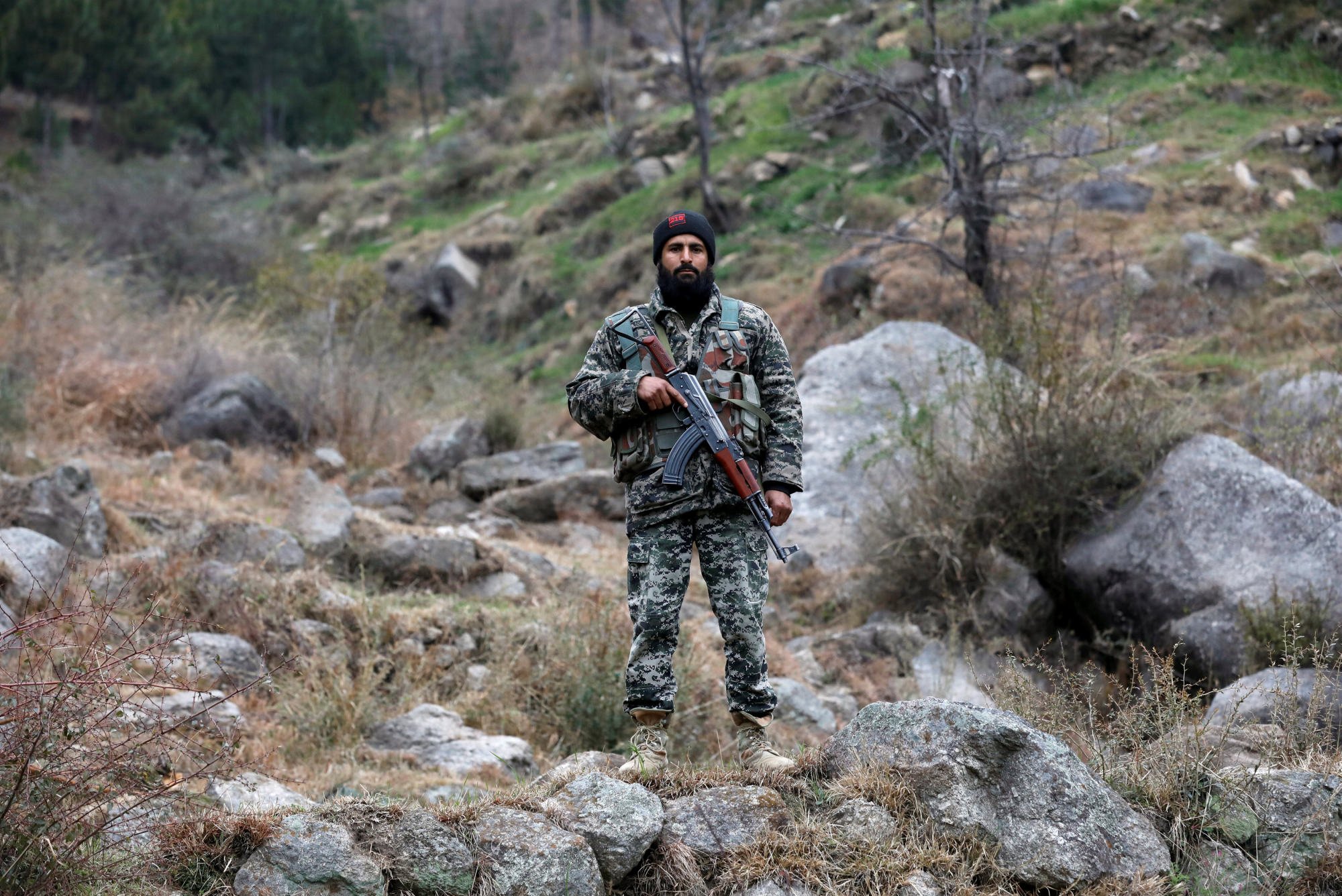
“Pakistan has been taught a lesson. After the Balakot strikes, it will think twice before it carries out any cross-border terrorist attack”, was what the BJP wants to convey, he said, noting that militant attacks had declined in the Indian-administered Kashmir region.
“Most of the militant attacks that are taking place seem to be the doing of local militants. They are not able to carry out the kind of spectacular attacks that have taken place in the past.”
Behera said the reasons for that were probably manifold.
“The militant attacks have reduced, probably because Pakistan is under severe economic pressure. Foreign investments in Pakistan have dropped to less than US$1.5 billion, whereas FDI [foreign direct investment] in India has gone up to US$85 billion,” he said.
Pakistan’s government has been under pressure to enact structural reforms needed to rescue it from a potential debt default like Sri Lanka.
The need for revenue and investment meant “Pakistan is in no position to follow an adventurous policy in Kashmir”, Behera said.

